By Jon Festinger on November 19, 2015
On Friday November 6, 2015 I was honoured to be invited to be on a panel and give a talk at the Pitblado Lectures in Winnipeg, Manitoba. This 55th edition of the Pitblado Lectures was put on by the Law Society of Manitoba, The Manitoba Bar Association, and The University of Manitoba Faculty of Law (http://www.pitbladolectures.com/). This years theme was “From Blackacre to Blackberry: Redefining Property and Ownership”.
Attached are a set of post-final slides from my presentation as well as a short written piece. Thanks to Professors Doug Harris and Graham Reynolds of the UBC Faculty of Law and Professor Katie Sykes of the TRU Faculty of Law for their comments on a draft of the latter.
Both the slides and the short writing take on the utility of defining virtual goods as property, particularly in a “Post I.P.” world effectively ruled by contracts. The slides also go on to explore the contradictions between patent law and copyright law which seem to favour innovators over creators for (IMHO) no particular or particularly good reason.
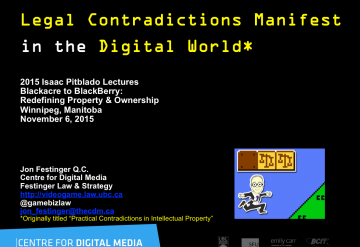
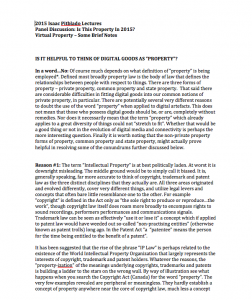
jon
Read More | No Comments
By Jon Festinger on October 4, 2015
The video of my short presentation on “Relevance for Creative Digitization & the Internet” at the “Roundtable on the Diversity of Cultural Expressions – Impacts and Implications of the UNESCO Convention Ten Years After and Ten Years Ahead: The View From BC” at Simon Fraser University, February 25, 2014 has been posted and can be accessed by clicking below.
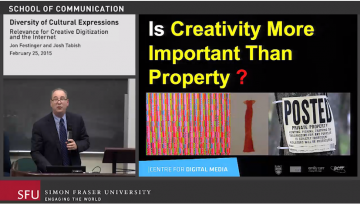
Previous reference to the proceedings and my slides can be found here: http://creativity.law.ubc.ca/2015/03/02/slides-from-impacts-implications-of-the-2005-unesco-convention-on-the-protection-and-promotion-of-the-diversity-of-cultural-expressions/
jon
Read More | No Comments
By Michael Jud on April 25, 2015
There has been a very interesting and controversial development in the world of video games:
Valve’s Paid ‘Skyrim’ Mods Are A Legal, Ethical And Creative Disaster
To put it briefly, we seem to be witnessing the first major push to turn freely available video game mods into a commodity, and into a revenue stream for game publishers. The new arrangement allows mod developers to sell their work through the Steam service while channeling 75% of the revenue to Steam and the publisher.
Up to now, mods have only ever been monetized through development into proper full release titles. I personally have mixed feelings about this new development. On one hand, it will be great if the opportunity to earn an income from modding results in all kinds of new creative efforts that would have been too costly before. But the danger here is that if modding comes to be seen purely as a revenue source for copyright owners then it may be reduced to nothing more than that in the future. It isn’t difficult to imagine companies cut from the same cloth as Nintendo prohibiting mods that aren’t for sale and aren’t paying that 75% tax into the publisher’s pocket. And that would put modders who aspire to make their work freely available in a very strange position.
Read More | No Comments
By liris on April 24, 2015
Saw this in the news and thought you guys might enjoy it, if anyone is in need a bit of a laugh/study break today.
“Report finds that Canadians top the world in smiling poop emoji use: Canadian emoji users found to be twice as raunchy and violent as the rest of the world”
“The report’s “findings of note” section indicates that when it comes to romance, French speakers lead the pack by using four times as many heart emojis as speakers of any other language.
Australians were found to use the most alcohol and drug emojis, Arabic speakers love flowers and plants, and Americans hold the top spot in a “random assortment of emoji & categories, including skulls, birthday cake, fire, tech, LGBT, meat and female-oriented emoji.”
http://www.cbc.ca/news/trending/canadians-top-the-world-in-smiling-poop-emoji-use-report-finds-1.3043143
Read More | No Comments
By tbud on April 22, 2015
The federal budget, in a section entitled “celebrating our heritage,” proposes to make some changes to the Copyright Act by extending the copyright term to sound recordings and performances for an additional 20 years. Many fear that these changes will undo the 2012 legislative amendments and restrict artistic freedom.
Some have been quick to point out that the proposed changes will largely benefit the music industry, and not the creators themselves.
You can read the full article in the National Post. Michael Geist has also written a piece on it.
Read More | No Comments
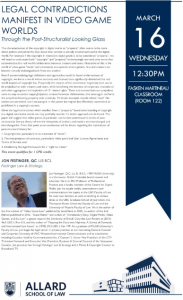
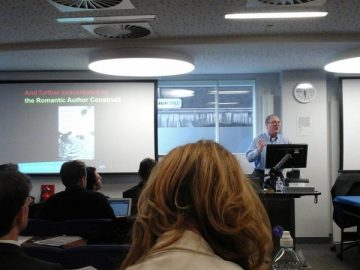

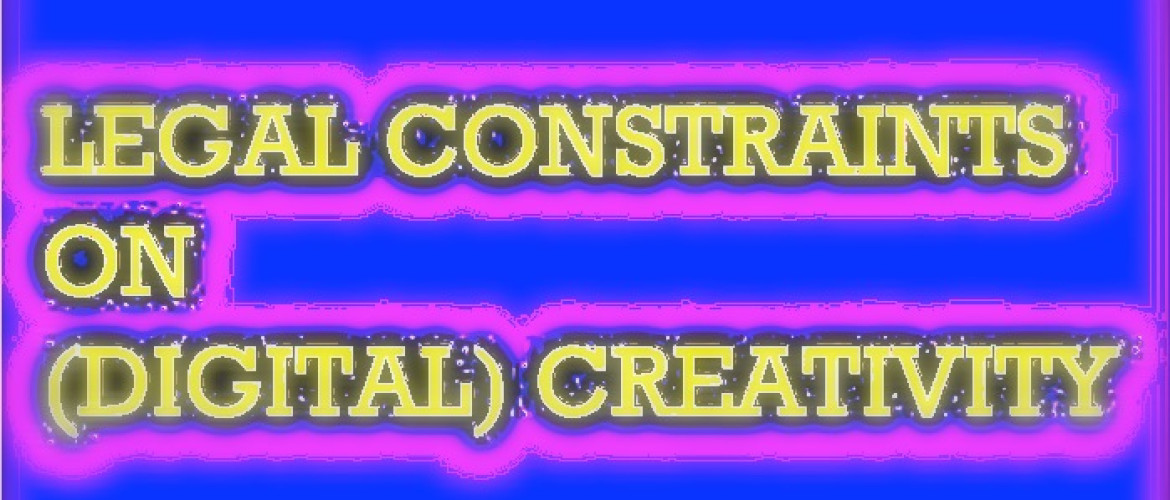



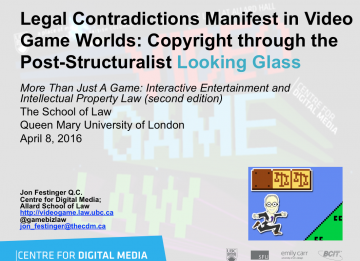
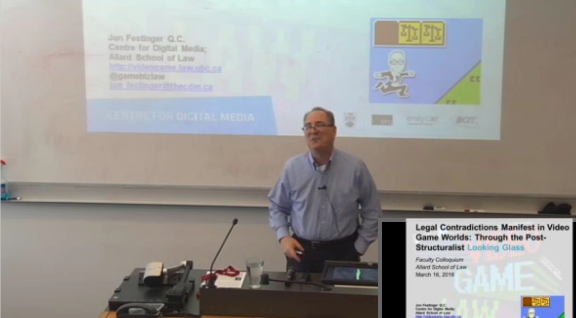



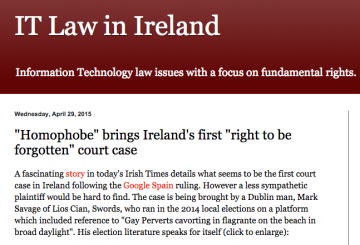
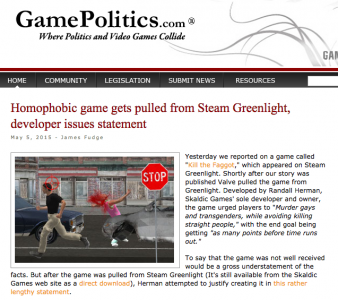

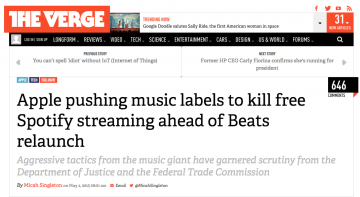
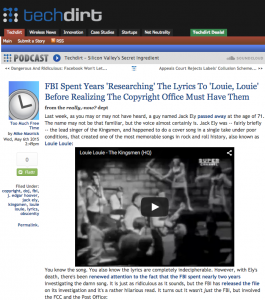

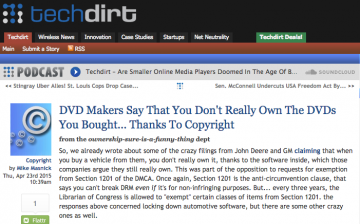
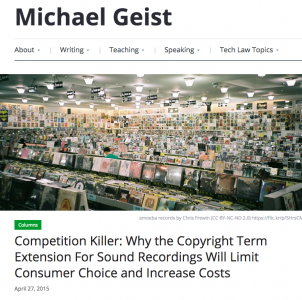

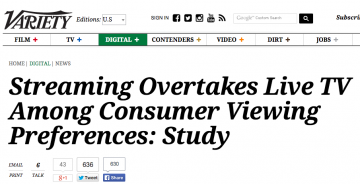
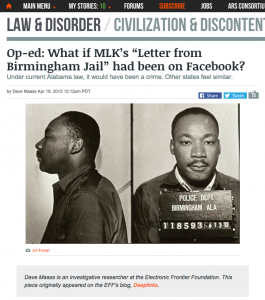
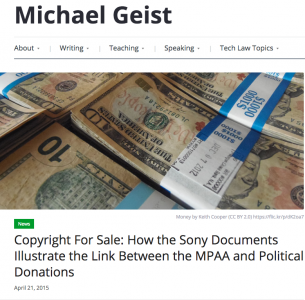
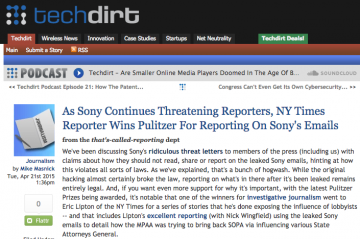


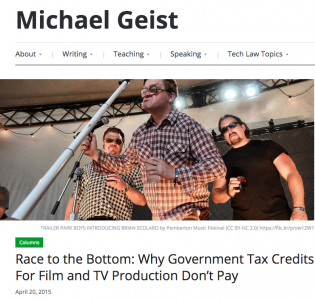
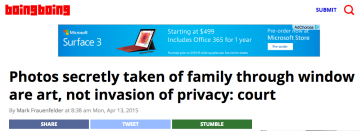
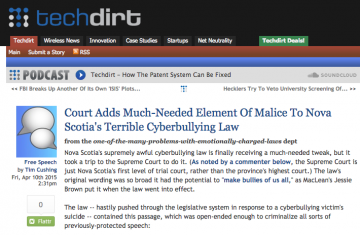
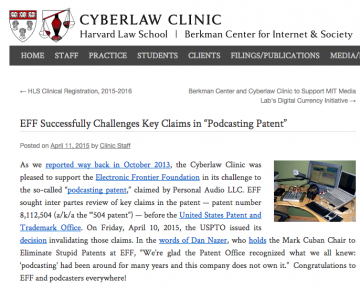
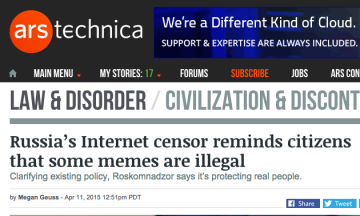
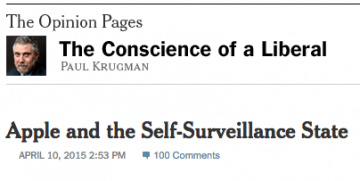

 Check out the UBC Video Game Law Course
Check out the UBC Video Game Law Course